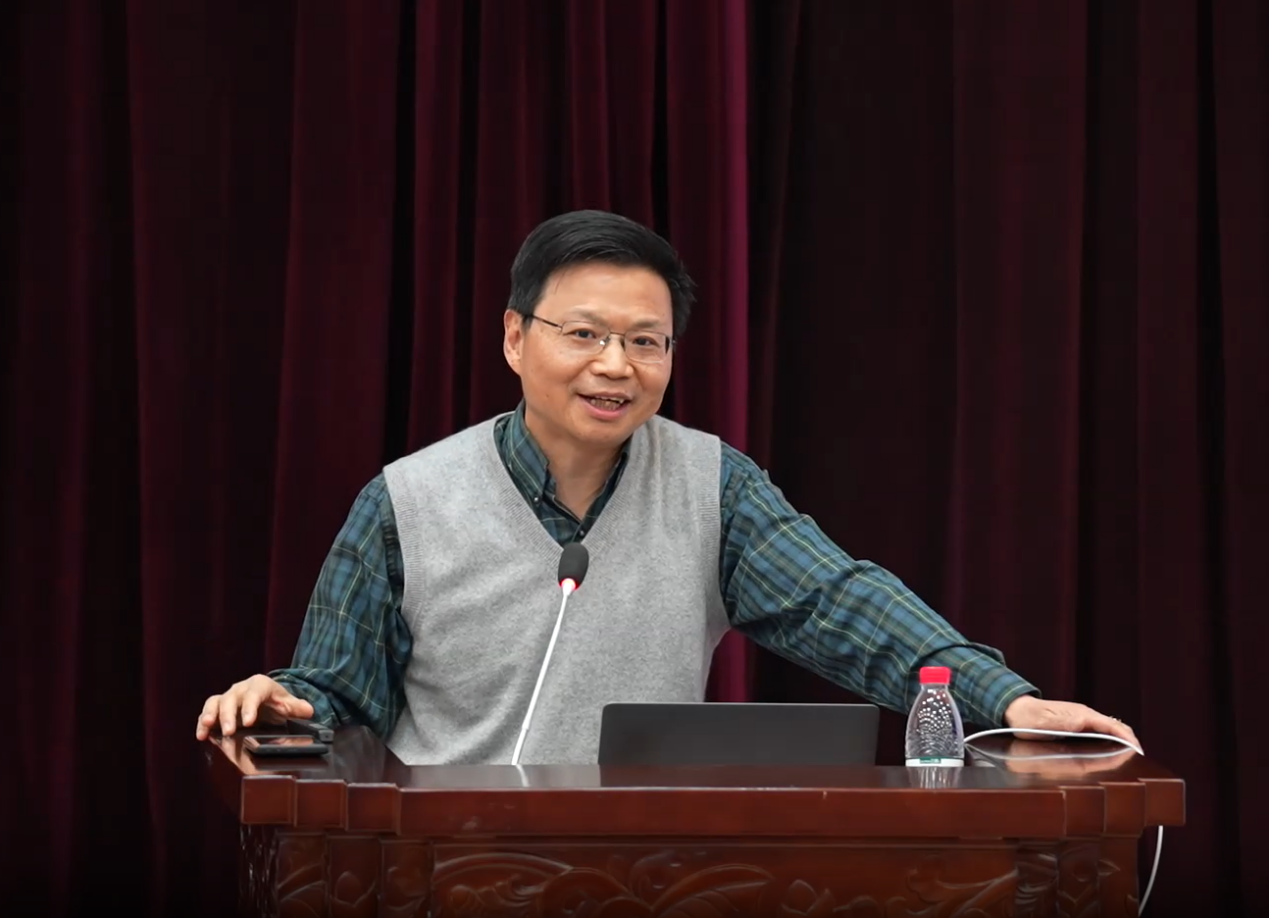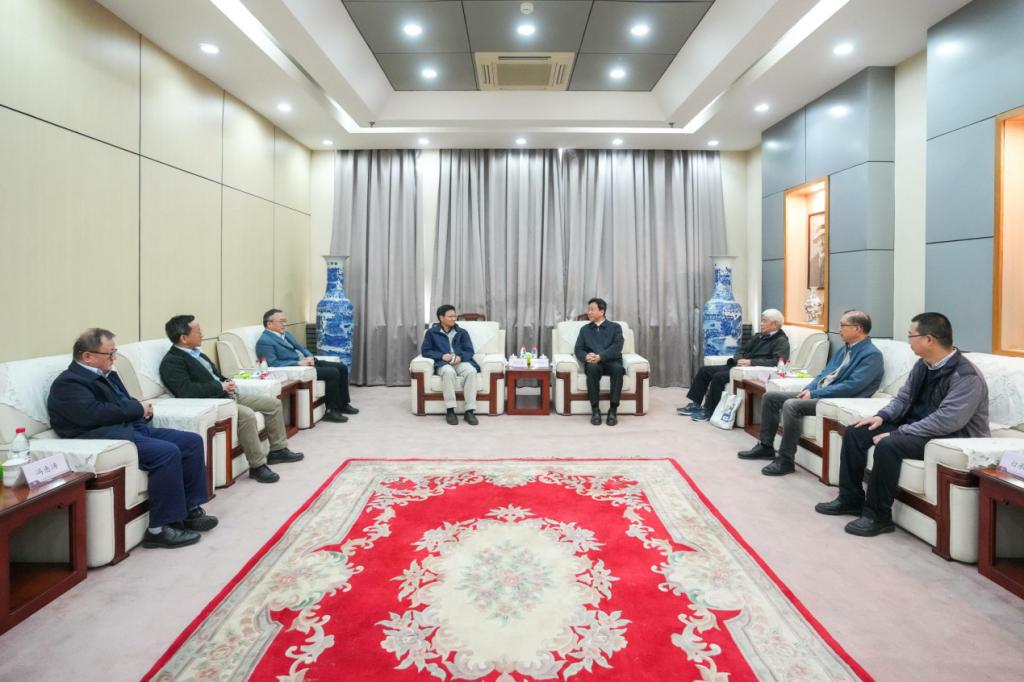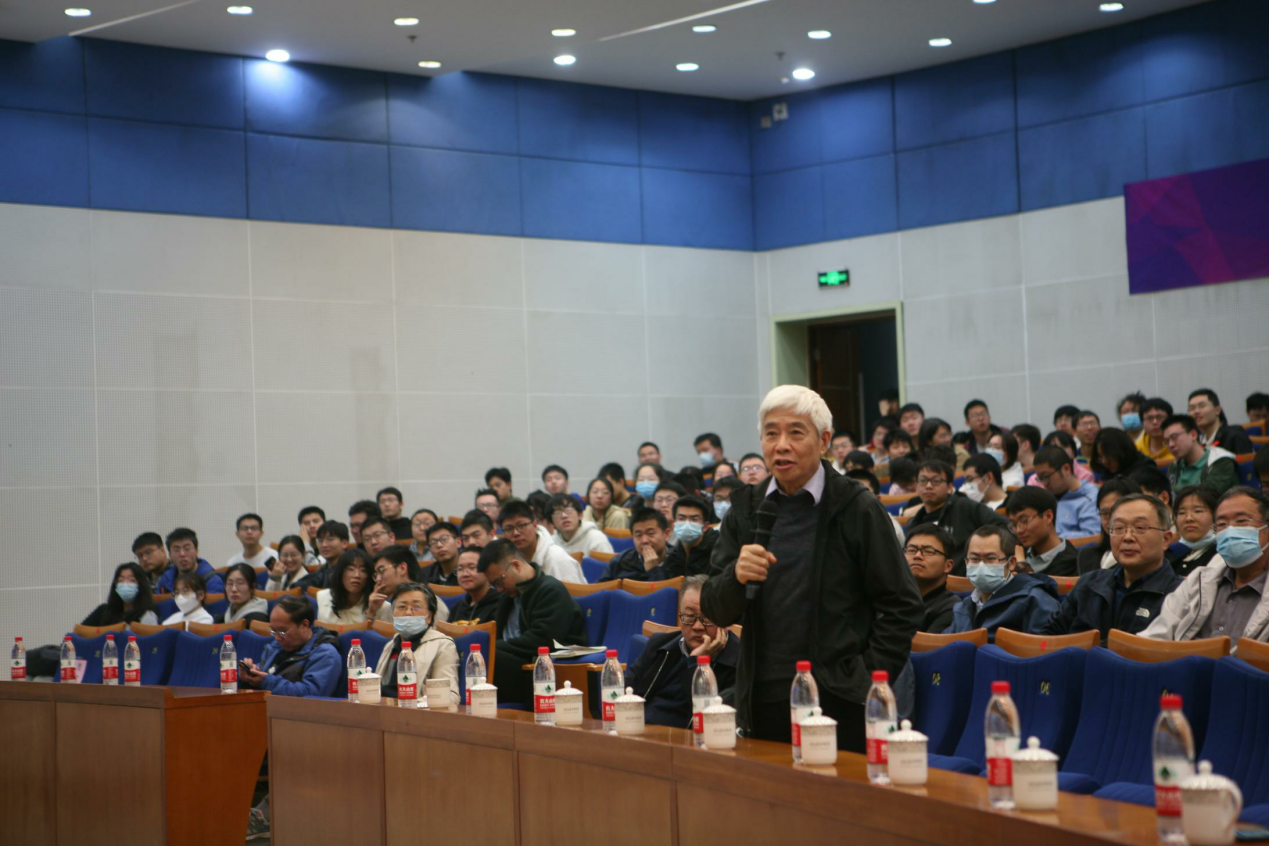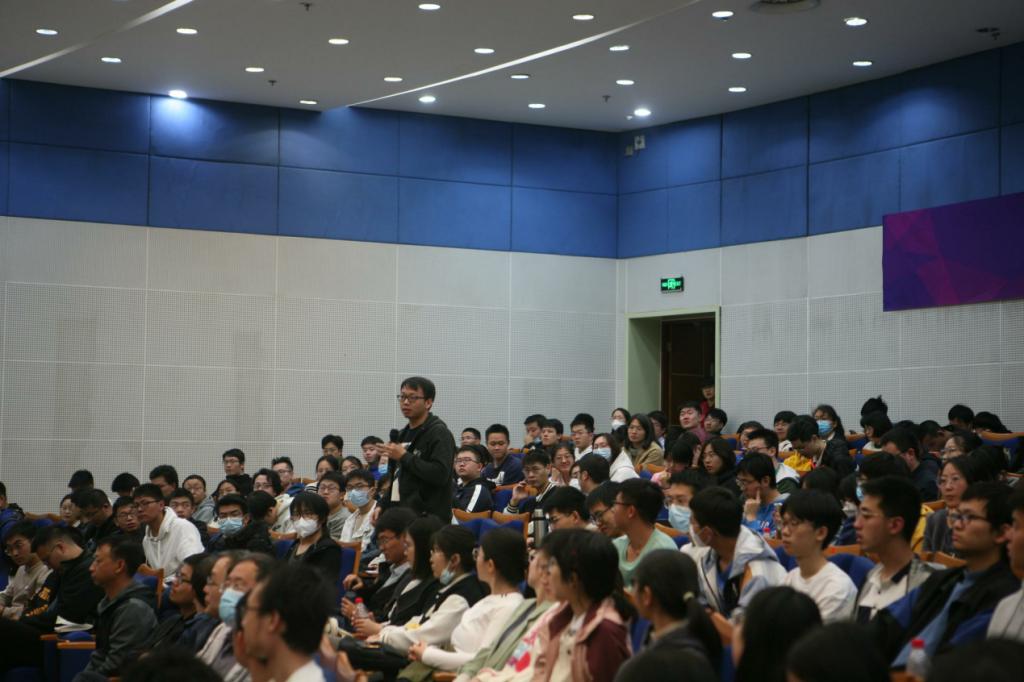
On April 25, Weinan E, member of academician of Chinese Academy of Sciences, dean of AI for Science Institute, Beijing, and director of Center for Machine Learning Research, Peking University, was invited to deliver a Chern Lecture on "AI for Science" for NKU teachers and students. Before the lecture, Secretary of the CPC Nankai University Committee Qingshan Yang met with Professor Weinan E.

The lecture began with the basic paradigms of scientific research. Combining with the latest advances, it showed the significant values of "AI for Science" and discussed about the talent cultivation for applied mathematics and its interdisciplinary subjects.
According to Professor Weinan E, the fundamental purposes of scientific research are to seek the basic laws and to solve practical problems, for which, two research methods were created: the Keplerian paradigm and the Newtonian paradigm. Both of these two paradigms have their own advantages that stimulate the development of scientific research, yet also, are facing their own barriers and bottlenecks. Then he introduced the progresses and applications of research on machine learning, especially on deep learning in recent years. By giving three examples: image recognition, human face image generation and the "AlphaGo" competition, which are all typical tasks that can be solved by machine learning, he explained in detail the mathematical theories behind them. With huge development potential, "AI for Science" is not only a new scientific research paradigm, it also provides us with a holistic view of scientific research. At the end of the lecture, he mentioned that applied mathematics will become the foundation of cross-disciplinary science when it gets fully-fledged, and encouraged the NKU students to lay a good foundation in mathematical sciences and contribute to the development of China's applied mathematics and its interdisciplinary subjects.
After the lecture, Prof. Weinan E had discussions with the teachers and students and answered their questions.





(Photographed by: Qiqi Zong, Guoping Feng)